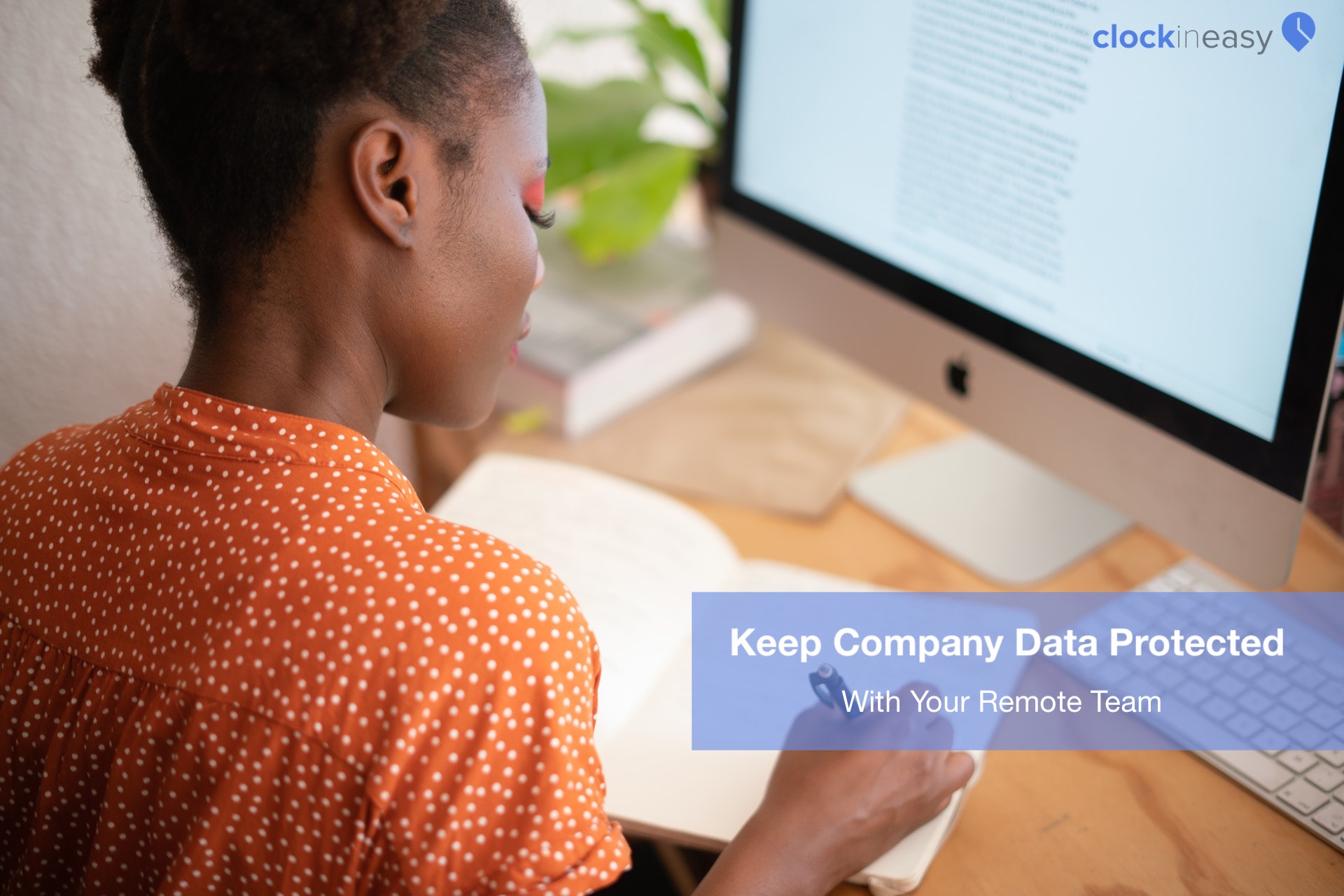 4 min read
4 min read Keeping Client And Employee Data Safe In A Remote Team
Working remotely is a necessity for organizations looking to recruit and retain a pool of talent. Today, data security when managing a remote team is one of the key challenges that organizations are dealing with as they abide by social distancing strategies in the global COVID-19 pandemic. Your remote team, which is spread across the country or even the globe, will need access to sensitive documents and accounts in order to perform their duties effectively. While modern technology has enabled employees to work remotely, it also poses potential risks of malware attacks that may infiltrate your company’s network and cause data leaks. Remote workstations do not have similar security policies and procedures as an office setup, hence the need to enhance data security using a multifaceted approach. Here is how you can keep your client and employee data safe when working with a remote team.
Educate Your Team On Data Security
The first step towards securing your data when working with a remote team is to educate them on the importance of data security. Although you might assume that your team is tech and internet-savvy, it is possible that they are not aware of the basic security measure they should undertake to protect your data. In a study conducted by the CNBS, employee negligence was cited as the biggest cybersecurity threat for organizations. The key lessons to be included in these education sessions should revolve around identifying socially engineered attacks, handling phishing attacks, and security measures with public networks.
Furthermore, as both employers and employees respond to social distancing strategies by working remotely, employers should educate their employees on COVID-19 scams that are in circulation. The National Cyber Awareness system recommends the creation of an organization’s central online bulletin board where employees get official communication and notifications.
Enhance Endpoint Security
Working with a remote team means that some team members will be using their personal devices, including computers and smartphones, to log into the organization’s management system. Since using unsecured internet connections is the most common way to expose employee and client data, enhancing endpoint connections ensures that all endpoint connections with remote users are secure.
Make sure you have a comprehensive data security policy beyond bring your own device protocol to help protect all connections coming through to your platform. Virtual Private Networks help in creating secure connections over the internet. This ensures that when your team members are using public Wi-Fi and devices, they are shielded from prying eyes. When selecting your VPN, ensure that all solutions are updated on both the server and firewall that is providing the VPN solution.
Make Use Of The Cloud
Cloud computing is one beneficial way of safeguarding your data when working with a remote team. Using the cloud ensures that remote teams have access to all the information they require instantly. You can set up remote access to the server using the cloud to help employees work virtually instead of downloading information from the cloud to their devices. Companies providing cloud services also provide you with safe and secure online storage and working spaces. A reputable cloud provider will ensure an active security protocol that is able to handle data breach issues as they arrive.
Furthermore, you can ensure the maximum security of your cloud data through encryption since hackers will not be able to access the information before decrypting the data. Ensure to have updated antivirus software on your cloud to help detect socially engineered attacks.
Use Multifactor Authentication
The two-factor authentication (2FA) is an additional security measure besides creating strong passwords. With step two verification, your remote team will be able to sign into their accounts using additional security procedures. In addition to their normal login credentials, they will be asked for additional information such as a code sent to their mobile phones, mobile app, and email or biometric information such as voice and retina unlock. The idea behind 2FA takes into account three key things to ensure you authenticate your employee. They include something they know (undisclosed), something they have, and biological information about them.
The two-step verification adds another security layer to keep you safe from data breaches, password leaks, and phishing attacks. If you are the administrator of a remote team, consider creating a mandatory policy for users to have the 2FA setup. Any employee who does not comply with this procedure before a pre-set deadline can be locked out of their account.
Harmonizing Data Security With Remote Work Policies
Using remote teams is a great way for organizations to maximizing their potential by hiring talent and reducing costs. However, working remotely does not have to jeopardize your data. Ensure you are cutting corners on data security through compliance with data security regulations and implementing policies to help your team secure your data. Your security plan should not be reliant on a single solution, but rather a multifaceted approach that will ensure your data stays safe.




